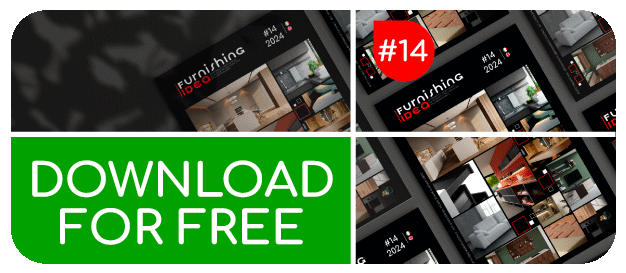
- 10/12/2024
- Companies: strategies and future
Index
Italian excellence in wood colouring, Tabu is a worldwide producer of natural coloured and multilayered veneers. Founded in Cantù in 1927 by the Tagliabue family, it is a "wood tailor shop" that has developed a dyeing technology that can be applied to dozens of wood species.
For several years now, the company has been following a path of sustainability, committed to reducing its environmental impact without compromising production growth and the quality of its products.
Innovation, sustainability and customisation are key issues for the subcontracting sector: to find out more about the company's strategies, we spoke to Dr. Andrea Tagliabue, Vice President of Tabu.
Innovation is the common thread that runs through all the divisions present at the last Sicam, which makes it possible to understand the great research work carried out by companies in the subcontracting sector to develop new products and study new processes.
Innovation is part of Tabu's DNA, we continue to explore new possibilities on different levels, from the classic search for new products to the most desperate creative contamination, always in full respect of environmental sustainability.

Tabu's innovative reFIGURED® veneers
New technologies offer three-dimensional solutions in various application areas, especially in the field of surfaces. How has Tabu responded to this new technology?
We have been at the forefront of offering three-dimensional veneers to the market with the Groovy range, creating a real new range that is very different from the classic milled panel. The range of three-dimensional veneers has also been expanded over time to include special items from the winners of our international Ideas For Wood competition.
Tabu is at the forefront of sustainability, being the first Italian company in the wood industry to declare the environmental impact of its production processes and to offset all its CO2 emissions by investing in renewable energy development projects. What are your achievements and objectives?
The concretisation of ECG activities and the implementation of all feasible levers for a real and organised strategy of respect for the environment are activities that Tabu has been developing for many years, in addition to FSC and PEFC certifications and a production organisation aimed at recycling. For two years now, we have been publishing the Sustainability Report, ahead of the industry, followed directly by an internal team of Sustainability Managers with specialised external consultants who certify the activities and results. Our commitment makes us an industry 'trendsetter' and drives us to increase our commitment and investment in training, certification and LCA year on year.

A step in the production process: flaking
Customization is a very strong trend, present not only at the Salone del Mobile in Milan and therefore with the finished product, but also at Sicam. A product that expresses itself through finishes, textures, colors, custon products.
The flexibility of production and the ability to respond to the requests of designers and style centers has made us, over time, always ready and structured for custom-made products, this is also an important asset for Tabu, for us there is not much difference between having to work on collections or custom-made products.
Recent economic data is certainly not exciting, with negative signals coming from all sectors, or at best, "cautious optimism" for the future. Your analysis of the market and possible future scenarios.
Recent global socio-economic situations (from the Covid to the various wars) have forced us to never evaluate macroeconomic scenarios that are discounted or long planned; one must be prepared to react to markets that suddenly come to a halt and to seize opportunities where they were not anticipated. Certainly, prudence and flexibility will be the order of the day in the coming year, because there are so many uncertainties and the countries that have been driving the Made in Italy furniture supply chain for years are not performing as well as they should.
With the election of Trump as President of the United States, what are the economic implications for the wood furniture supply chain?
President Trump's policies are also unclear; while we expect tariffs to protect the US production/distribution supply chain, specific trade agreements could emerge to balance the import/export system with Europe. We are all at the window to assess the situation as it unfolds; we certainly do not have high expectations for environmental policy from the new executive. However, this aspect could prove decisive for Italian companies, which, through investment and commitment, are gaining a more important position and "expertise" in sustainability than those in the United States.

Inlays on the "Forest" theme at the Tabu stand, Salone del Mobile Milan 2024


 en
en  Italian
Italian French
French German
German Spanish
Spanish Portuguese
Portuguese








